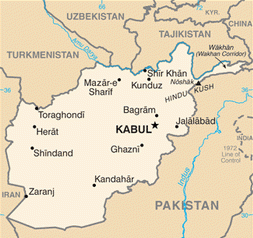The nationalization of the “private security contractor” industry in Afghanistan has led to a massive increase in prices. It has also lead to considerable anger in the US Congress, and discussions over which, if any, aid projects will continue with the newer, pricier guards.
 “Personally, I’m offended,” said Rep. Jason Chaffetz (UT – R). “I think we are being pushed around.” A recent audit showed that the cost of USAID projects in Afghanistan could rise by “as much as 46%” because of the increased costs associated with the Afghan Public Protection Force (APPF).
“Personally, I’m offended,” said Rep. Jason Chaffetz (UT – R). “I think we are being pushed around.” A recent audit showed that the cost of USAID projects in Afghanistan could rise by “as much as 46%” because of the increased costs associated with the Afghan Public Protection Force (APPF).
The origins of the APPF are complicated. The US and other occupation forces have long used private contractors and subcontractors to protect shipments and projects. Afghan President Hamid Karzai railed against the contractors, saying that the massive number of decently paid positions were making it harder to recruit people to the police and military. He attempted to ban them several times over the years, but the efforts were repeatedly spurned by the US.
At the same time, the US started to express concern that some of the subcontractors were keeping costs down by funneling fractions of their payments to insurgent factions as bribes not to attack them.
The “answer” eventually arrived at for both concerns was to nationalize all the private contractors under the APPF, an Afghan government-owned business that has a monopoly on “private” security. As usual, this isn’t nearly the cureall it was supposed to be.
That’s because the APPF charges more—a lot more. The flat rate “cost” for the security forces is higher, they expect the US to pay for contractor’s uniforms, and there is a 20 percent surcharge that is simply called “profit,” and no one seems sure where that goes.
It’s theoretically supposed to answer the concerns of contractors secretly in league with contractors too, but Afghanistan’s national security forces haven’t had a great reputation either.


